
Heinrich August Marschner was a German composer best known for his operas. He is considered to be the most important composer of German opera between Weber and Wagner.
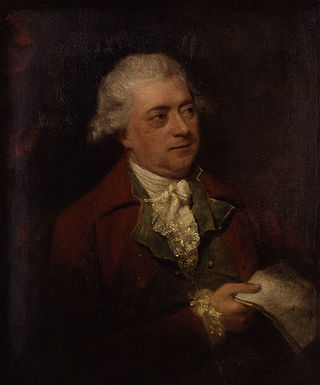
John O'Keeffe was an Irish actor and dramatist. He wrote a number of farces, amusing dramatic pieces and librettos for pasticcio operas, many of which had great success. Among these are Tony Lumpkin in Town (1778), Love in a Camp (1786), and Omai (1785), an account of the voyages of the Tahitian explorer Omai, and Wild Oats (1791).

Joseph Shepherd Munden was an English actor.

The Poor Soldier is a 1783 British pasticcio opera with music by William Shield and a text by John O'Keeffe. It was a comedy set around Irish soldiers returning home after fighting in the British army in the American War of Independence, which formally ended that year with the Peace of Paris. One of the redcoats must fight for the love of Norah with the urbane Captain Fitzroy. The events are set entirely in a small Irish village called Carton, a few miles from Dublin, although several versions refer to it only as "a country village".
Julian Barry was an American screenwriter and playwright, best known for his Oscar-nominated script for the 1974 film Lenny about comedian Lenny Bruce. Barry adapted the script from his successful Broadway play of the same name. The film, directed by Bob Fosse and starring Dustin Hoffman and Valerie Perrine, was nominated for the so-called Oscar Grand Slam, one of some 40 films to be so honored.

Patrick in Prussia, or Love in a Camp is a 1786 comic opera with music by William Shield and a libretto by John O'Keeffe. An afterpiece, it was a sequel to the 1783 hit The Poor Soldier with the characters now serving in the Prussian army.
The Shamrock is a 1777 Irish play or pasticcio opera by John O'Keeffe. It was first staged on 15 April 1777 at Crow Street Theatre in Dublin. According to White (1983), it is unsure whether the work was performed as a straight play or as a pasticcio opera to music by William Shield, as in its altered version as an afterpiece for the London stage, The Poor Soldier (1783).

The Castle of Andalusia is a 1782 comic opera by Samuel Arnold and a libretto by John O'Keeffe. It was a heavily rewritten version of the 1781 work The Banditti, which had been a failure.
John Emery (1777–1822), was an English actor.

Wild Oats is a comedy play by the Irish writer John O'Keeffe which premiered at the Theatre Royal, Covent Garden in 1791. O'Keefe's eyesight deteriorated so the play would have been dictated to his daughter Adelaide O'Keeffe. The original Covent Garden cast included John Quick as Sir George Thunder, William Thomas Lewis as Rover, Joseph George Holman as Harry, Richard Wilson as John Dory, Thomas Hull as Banks, William Cubitt as Gammon, Joseph Shepherd Munden as Ephraim Smooth, William Blanchard as Sim, James Thompson as Sailor, Charles Farley as Sailor, Willaim Macready as Midg, Jane Pope as Lady Amaranth and Mary Wells as Jane. The Irish premiere took place at the Crow Street Theatre in Dublin on 5 December 1791.

Joseph George Holman (1764–1817) was an English actor, dramatist and actor-manager.
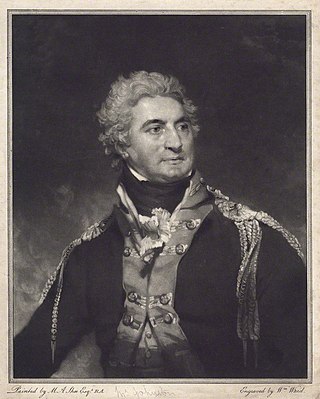
John Henry Johnstone (1749–1828), also known as 'Jack' Johnstone or 'Irish' Johnstone, was an Irish actor, comedian and singer. He was a notable performer of Stage Irishman roles.
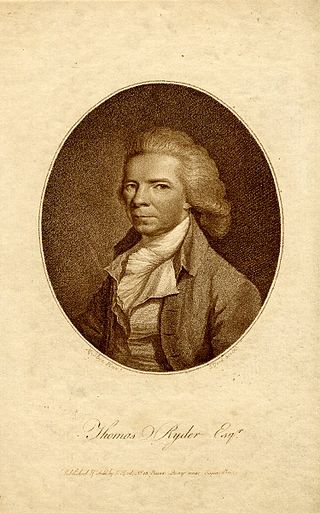
Thomas Ryder (1735–1790) was a British actor and theatre manager, associated with the Smock Alley Theatre in Dublin. As a player, he was considered at his best in low comedy.

Giovanna Sestini was a soprano opera singer who performed in her native Italy, in Portugal, and from 1774 in London, where she lived for the rest of her life. For many years she was the popular prima buffa in comic opera at the King's Theatre in the Haymarket. In her later years, she was known by her married name, Joanna Stocqueler.
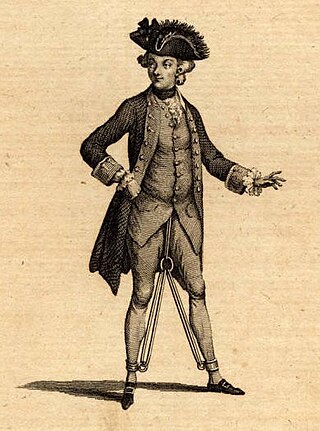
Margaret Kennedy was a contralto singer and actress. She was best known for her performances in male roles, especially in the operas of Thomas Arne.

Louisa Fontenelle was an actress and singer who played in London and Scotland before marrying and heading off to America to join the Boston Theatre. In Dumfries, her acting came to the attention of Robert Burns, who wrote a number of poems for her.
Charles Thomas Carter was an Irish composer and organist with mixed success as an opera composer in London, but with some songs that remained popular beyond his lifetime.
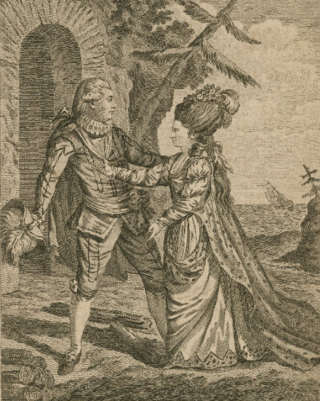
George Mattocks (1735–1804) was a British stage actor and singer.

Ralph Wewitzer (1748–1825) was an English actor. He won critical acclaim in supporting parts, but was never given leading roles. He had a 44-year acting career, and is thought to have learned over 400 speaking parts.
Edward Evans Townsend (1766–1809) was a Welsh stage actor and singer. After making his reputation as a touring actor in Yorkshire, notably at Hull under the management of Tate Wilkinson, he was at the Theatre Royal, Norwich in the early 1790s. He also appeared in Ireland at the Crow Street Theatre and the Theatre Royal, Cork.















